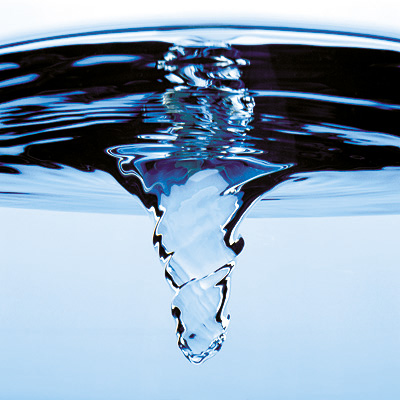 Conclusions of Zaragoza International UN-Water Conference on Water Cooperation
Conclusions of Zaragoza International UN-Water Conference on Water Cooperation
Mutual trust and understanding the real needs of communities are key factors for successful water cooperation, according to the participants of the International UN-Water Conference on water cooperation which took place from 8 to 10 January 2013 in Zaragoza, Spain. The participants shared a wide range of initiatives, including experiences in rural and urban areas, and cases at country and basin level, to identify lessons learned and key success factors. The need for cooperation was highlighted as critical for sustainable water management.
Micro-irrigation practices and experiences from water user associations and small communities in Peru, Kenya, Guatemala, Bolivia, Madagascar, Ethiopia and India, examples of multisectoral collaboration in different cities around the world, and partnerships between public and private actors have been discussed.
Cases from Kenya and Bolivia demonstrated that the existence of a legal framework to support the creation of collective water management is important but it is implementation which is determinant. To actually realize cooperative water management, the implementation of a system of incentives and penalties is also required. While political will enables the development of laws and regulations, implementation should come from local organizations and institutions.
Identifying appropriate solutions Executive can be hampered by differences in perceptions, as demonstrated by specific cases in Peru and Kenya, where projects failed because irrigation technologies were imposed without taking into consideration traditional practices and perspectives.
While financing is important and water user associations are often created through development cooperation funds, it should be complemented by cooperation and mutual support between sectors and users to become sustainable.
»Trust forms the foundation on which the house of water cooperation can be built. We should invest in generating trust«, declared Victor Viñuales, director of the Spanish NGO Ecology and Development (ECODES), who has participated in this conference.
Overexploitation of aquifers was one of the other main themes in which the collective management by organizations such as water user associations has been recognized as essential. In cases such as the aquifer of the Bajo Llobregat in Spain, the fact that all stakeholder felt the urgent need for cooperation was the key success factor for sustainable basin management. Presenters of this and other cases emphasized the importance of building relationships between water user communities and authorities based on mutual respect and avoiding paternalistic attitudes.
According to Brice Lalonde, Coordinator of Rio+20 at the UN Department of Economic and Social Affairs, »We are entering the era of water reuse. Particularly in cities, water reuse is imperative«. Learning how to cooperate to recycle water among different users and sectors is crucial for providing access to safe sanitation to the 2.6 billion people who are currently lacking this basic service.
On the last day of the Conference, the Spanish case was analyzed. International participants gained insights on participatory processes implemented in the Ebro River Basin with the Basin Authority model as an example which can inspire other countries. Other shared examples of cooperation and collaboration between organizations included the Spanish Cooperation Fund for Water and Sanitation, and a number of solidarity projects and participatory processes in the regions of Aragon and Navarra in Spain.
Political will, legal frameworks, accountability and institutional structures provide a solid foundation for water cooperation. »Achieving water cooperation is the result of a long term process which requires time, patience and mutual trust«, summarized Josefina Maestu, director of the UN Office to support the International Decade for Action ‘Water for Life’ 2005–2015 when closing the Conference.
| Contact information | n/a |
|---|---|
| News type | Inbrief |
| File link |
http://www.hydrology.nl/images/docs/alg/2013.01.10_international_press_note_zaragoza_conference_eng.pdf |
| Source of information | Hydrology.nl |
| Subject(s) | METHTODOLOGY - STATISTICS - DECISION AID , NATURAL MEDIUM , POLICY-WATER POLICY AND WATER MANAGEMENT , RISKS AND CLIMATOLOGY |
| Relation | http://www.hydrology.nl/images/docs/alg/2013.01.10_international_press_note_zaragoza_conference_spa.pdf |
| Geographical coverage | Spain |
| News date | 15/02/2013 |
| Working language(s) | ENGLISH , SPANISH |
 you are not logged in
you are not logged in





